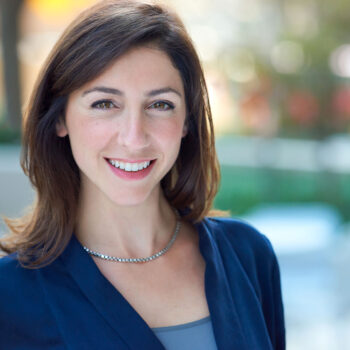How Cargill has Survived and Thrived for Seven Generations
Cargill is undoubtedly an exception to the old proverb: “Shirtsleeves to shirtsleeves in three generations.” Cargill is the largest private company in the United States with 150,000 employees and nearly $110 billion in annual revenue and has made it to generation seven. The farm-to-fork conglomerate that supplies McDonald’s, Unilever, Coca-Cola, to name a few, originated as a single grain elevator in Iowa back in 1865. Think about that – that’s the year that Robert E. Lee surrendered to Ulysses S. Grant to end the Civil War. Women were wearing hoop skirts, and Colorado wasn’t even an official state yet.
Although most of the headlines dominating financial news sources revolve around publicly-traded companies, the United States economy is two-thirds driven by family businesses, most of which are privately-held. With this in mind, the Olin Business School at Washington University in St. Louis developed a program specifically on family business, and they recently invited Marcel Smits, CFO of Cargill, to speak at their annual symposium. With an impressive career spanning industries, countries, and both the public and private sectors, Mr. Smits drew a sizable crowd full of private business owners, board members, advisors, and business school students to the interview-style symposium, all hoping to glean some lessons on how Cargill has epitomized family business success. Below is my list of the top three things Cargill has done absolutely right:
Keeping Company Values Constant Through Company Evolution
The company purpose “to nourish the world in a safe, responsible, sustainable way” has been their “North Star,” as Mr. Smits described, when making business decisions. “Are we doing right by our consumers? Are we doing right by the communities where we have our operations? Are we improving people’s lives?” Keeping these values at the forefront for both employees and family members provides a sense of pride in their company, and it steers the management team along the way. “We are the custodians of 150 years of proud history.”
Keeping values constant, however, is not an excuse to stick with the status quo. Values may translate in modern times differently than they did 100 years ago. They’ve made decisions in the past that made sense at the time, but that over time have not lasted. They got into the steel business during an expansion period, for example, but they have since exited. They’ve expanded into various countries and regions, only to depart (sometimes temporarily, sometimes permanently) because of geopolitical issues. Mr. Smits described that the management team and family board each spend a decent amount of time “future-proofing” their business – thinking of how their business could be disrupted and trying to get ahead or be the disrupter themselves, all while staying true to the company values. “We need to set Cargill up for the next 150 years.”
Recognizing the Importance of Keeping the Owners Happy
Share price doesn’t matter in a practical sense for the Cargill family shareholders – they’re not selling, so a big number on paper without dollars in the bank doesn’t mean much. Keeping dividends predictable, and growing, is a way to keep family shareholders happy. Mr. Smits highlighted that Cargill has spent the time and crunched the numbers to determine what kind of dividend would allow the current generation to live at the same lifestyle level of prior generations, and – no surprise – the dividend has to grow in order to support the natural expansion of the family. The company sets growth goals to achieve the needed dividend increase. In the meantime, Cargill keeps its shareholders informed on company projections and profitability, and they make it a point to communicate any potential changes to dividends that may result.
In addition, management recognizes that from time-to-time, family members will need some liquidity from their ownership stake. The Cargill management team keeps track of the family shareholders’ liquidity needs related to their ownership and identifies sources of liquidity years in advance of the need.
Including Independent, Non-Family Members on the Board Is Invaluable
Mr. Smits explained that the non-family board members provide “enormous wealth of their experience” with other companies as perspectives for the family board members who have known no other context outside of Cargill. Independent board members can help interpret management team reports and provide the comfort and confirmation that what the management team is saying is normal/right/rings true. Mr. Smits also explained that all board members – family and independent – have limited terms to ensure that each board seat is filled with someone who remains engaged and earns his/her fee.
Cargill is clearly one of the most successful family businesses in modern times. Even though I won’t be around for all of it, I can’t wait to see what the next seven generations bring for Cargill.


